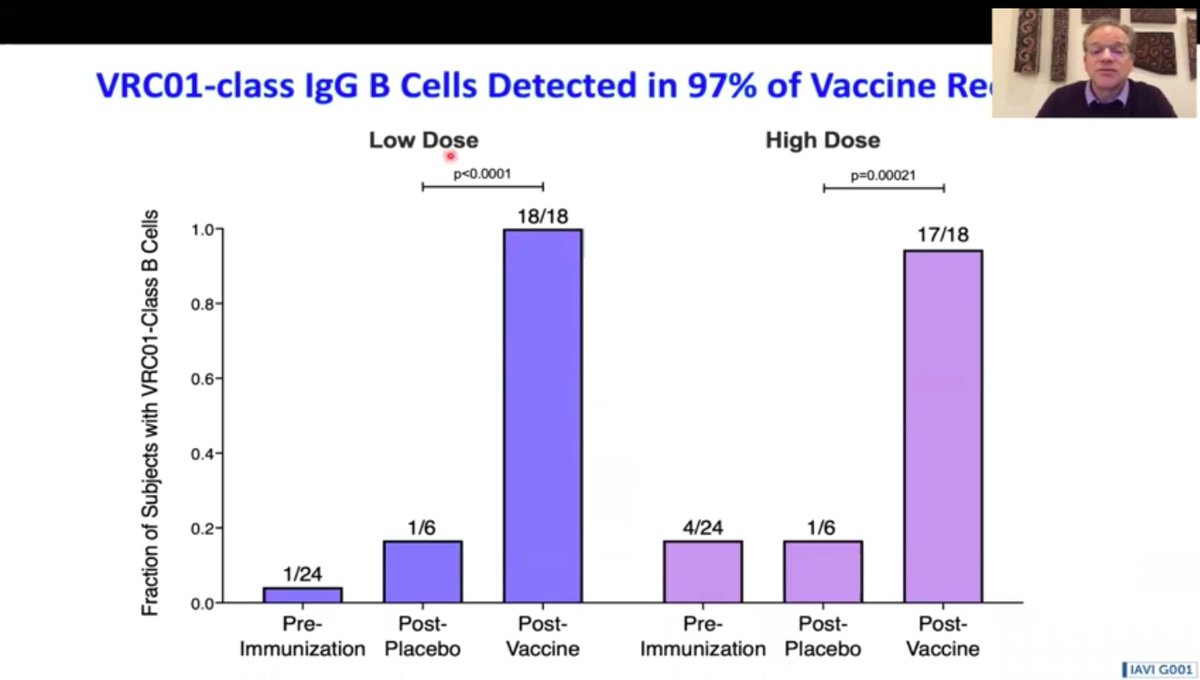
Unfortunately there's misinformation circulating about this #HIV vaccine study. It's not mRNA but protein, and there's no expectation of efficacy - it's a possible first step on a long road toward persuading B cells to make protective antibodies scripps.edu/news-and-event… @IAVI
SARS-CoV-2 spike protein is readily vulnerable to neutralizing antibodies thankfully. But HIV Env protein has a protective cloak of sugar molecules, and mostly only weird-shaped antibodies produced by rare B cells can penetrate the cloak and neutralize HIV.
Inducing these weird antibodies with vaccines is a tough challenge, hence the lack of an effective #HIV vaccine. The @scrippsresearch @IAVI study is hopefully a first step toward boosting numbers of B cells that - with additional persuasion - can produce protective antibodies.
I think the confusion arose due to plans for future work with @moderna_tx to use mRNA to deliver this & other proteins. This is good news - hopefully will accelerate efforts to push B cells to take the remaining steps toward generating effective antibodies iavi.org/news-resources…
An additional error in the viral tweets circulating about this study is the statement that 97% of recipients developed antibodies against #HIV - *this wasn't measured.* Rather, it was the proportion of people in whom a certain type of B cell was detectable (see this fig from R4P) 

• • •
Missing some Tweet in this thread? You can try to
force a refresh


